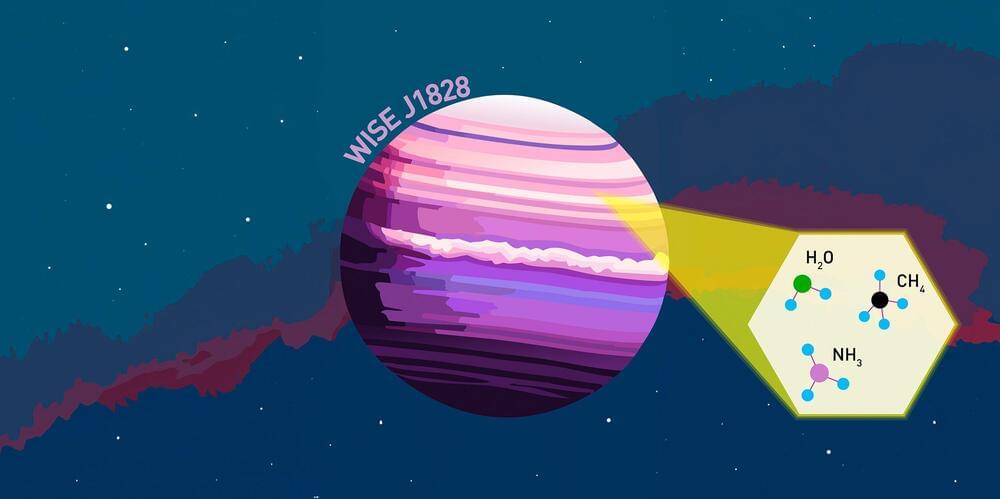They reveal the origin of wine, the age of bones and fossils, and they serve as diagnostic tools in medicine. Isotopes and isotopologues—molecules that differ only in the composition of their isotopes—also play an increasingly important role in astronomy. For example, the ratio of carbon-12 (12C) to carbon-13 (13C) isotopes in the atmosphere of an exoplanet allows scientists to infer the distance at which the exoplanet orbits its central star.
Until now, 12C and 13C bound in carbon monoxide were the only isotopologues that could be measured in the atmosphere of an exoplanet. Now a team of researchers has succeeded in detecting ammonia isotopologues in the atmosphere of a cold brown dwarf.
As the team has just reported in the journal Nature, ammonia could be measured in the form of 14NH3 and 15NH3. Astrophysicists Polychronis Patapis and Adrian Glauser, who are members of the Department of Physics as well as of the National Centre of Competence in Research (NCCR) PlanetS, were involved in the study—Patapis as one of the first authors.
